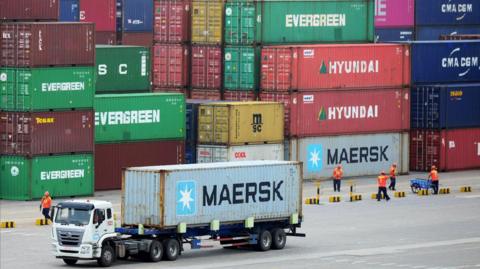Donald Trump says he will hit China, Mexico and Canada with new tariffs on day one of his presidency, in an effort to force them to crack down on illegal immigration and drug smuggling into the US.
The US president-elect said he would sign an executive order imposing a 25% tariff on all goods coming from Mexico and Canada, after being inaugurated on 20 January 2025.
He also said an additional 10% tariff would be levied on China until its government cracked down on fentanyl smuggling to the US.
If Trump follows through, it will mark a major escalation in tensions with the US's three top trading partners. It could also lead to higher prices for Americans, since tariffs work as a form of tax on imports.
